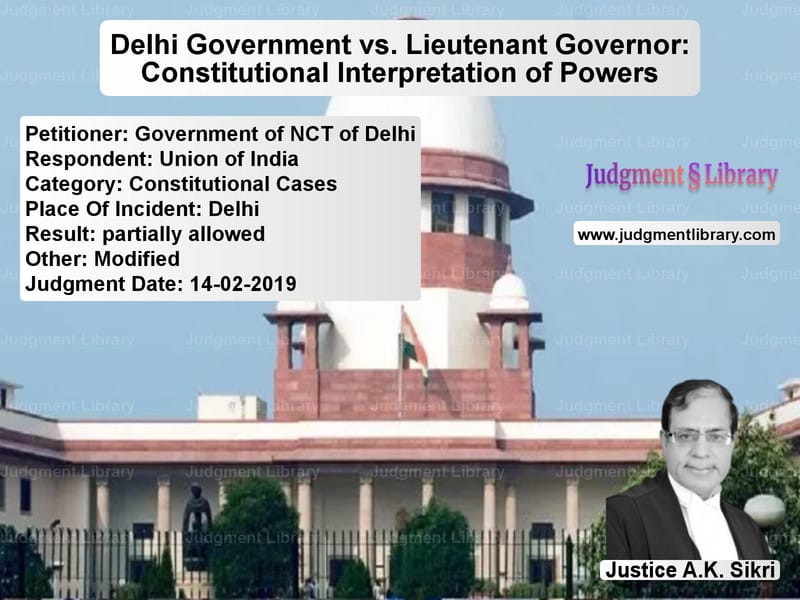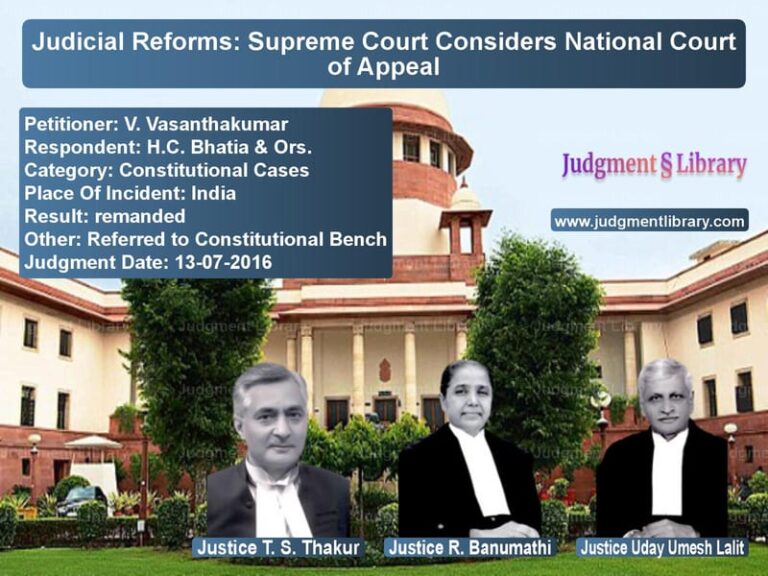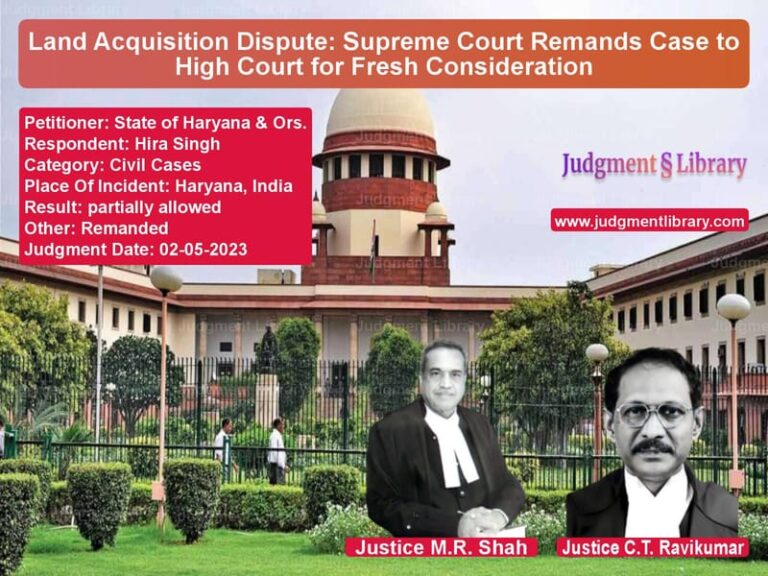Delhi Government vs. Lieutenant Governor: Constitutional Interpretation of Powers
The governance structure of the National Capital Territory of Delhi (NCTD) has been a subject of extensive legal scrutiny. The case in question, arising from the dispute between the elected government of Delhi and the Union of India, addresses the interpretation of Article 239AA of the Constitution, which lays down the framework for governance in Delhi. The issue of whether the Lieutenant Governor (LG) has overriding authority over the elected government has been a contentious one, leading to multiple legal battles.
Historical Context of Delhi’s Governance
Delhi’s governance model has been unique due to its status as a Union Territory with special provisions under Article 239AA. Unlike full-fledged states, Delhi has an elected government, but certain subjects, such as land, police, and public order, remain under the control of the central government. This has led to frequent clashes between the Delhi government and the Union of India over administrative authority.
Over the years, successive governments in Delhi have sought greater autonomy, arguing that an elected government should have the final say in matters of administration. However, the Union of India has maintained that Delhi’s status as a Union Territory means that the Lieutenant Governor, representing the President, has overriding powers.
Petitioner’s Arguments
The Government of the National Capital Territory of Delhi (GNCTD) argued that:
- The elected government should have full control over executive decisions, except in areas explicitly excluded under Article 239AA.
- The Lieutenant Governor should act in accordance with the aid and advice of the Council of Ministers, except in rare cases where he is required to act at his discretion.
- Frequent interference by the LG undermines democratic governance and renders the elected government ineffective.
- Delhi’s unique status should not be interpreted in a manner that subjugates the elected government’s authority.
Respondent’s Arguments
The Union of India contended that:
- Delhi remains a Union Territory under Part VIII of the Constitution, and the ultimate control remains with the central government.
- The Lieutenant Governor, as the representative of the President, has overriding powers in matters where the Constitution does not explicitly grant authority to the elected government.
- Article 239AA does not grant full statehood to Delhi, and significant matters of governance must remain with the Union Government to maintain national interest.
- Previous legal precedents support the Union’s view that the LG is not merely a figurehead but has substantive powers.
Supreme Court’s Analysis
The Supreme Court, in its judgment, examined the constitutional scheme of Article 239AA and the legislative intent behind granting Delhi special status.
“The elected government must have the power to govern, and the Lieutenant Governor should not act in a manner that obstructs the functioning of an elected body. The role of the LG is not to interfere but to coordinate where necessary.”
Key observations made by the Court:
- Delhi enjoys a unique status, but the elected government should have control over subjects except for those specifically reserved for the Union.
- The Lieutenant Governor must act in accordance with the aid and advice of the Council of Ministers in matters within the legislative competence of the Delhi government.
- Discretionary powers of the LG should be exercised sparingly and only in exceptional circumstances requiring presidential intervention.
- The spirit of cooperative federalism must be upheld, ensuring that the elected government is not rendered powerless.
Implications of the Judgment
The Supreme Court’s ruling significantly impacts the governance of Delhi. By limiting the discretionary powers of the LG, the Court has reinforced democratic principles. The ruling ensures that:
- An elected government has meaningful control over the administration.
- The LG cannot interfere arbitrarily in everyday governance.
- The division of powers is interpreted in a manner that strengthens democracy.
- The executive authority of the elected government is respected.
Constitutional Interpretation and Future Implications
This ruling sets an important precedent for governance in Union Territories with elected governments. The judgment clarifies that the Lieutenant Governor’s role is not to serve as an obstructionist force but to act as a bridge between the state and central governments.
The ruling also reiterates the principle of federalism in the Indian Constitution, emphasizing that power-sharing mechanisms must be interpreted in favor of democratic governance. Moving forward, this judgment will likely influence future disputes regarding power-sharing arrangements in other Union Territories.
Petitioner Name: Government of NCT of Delhi.Respondent Name: Union of India.Judgment By: Justice A.K. Sikri.Place Of Incident: Delhi.Judgment Date: 14-02-2019.
Don’t miss out on the full details! Download the complete judgment in PDF format below and gain valuable insights instantly!
Download Judgment: Government of NCT of vs Union of India Supreme Court of India Judgment Dated 14-02-2019.pdf
Direct Downlaod Judgment: Direct downlaod this Judgment
See all petitions in Fundamental Rights
See all petitions in Constitution Interpretation
See all petitions in Legislative Powers
See all petitions in Public Interest Litigation
See all petitions in Judgment by A.K. Sikri
See all petitions in partially allowed
See all petitions in Modified
See all petitions in supreme court of India judgments February 2019
See all petitions in 2019 judgments
See all posts in Constitutional Cases Category
See all allowed petitions in Constitutional Cases Category
See all Dismissed petitions in Constitutional Cases Category
See all partially allowed petitions in Constitutional Cases Category







